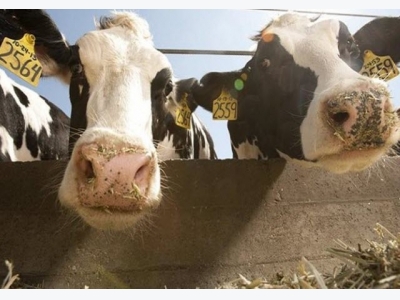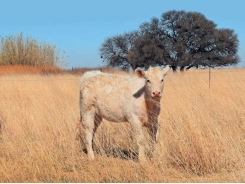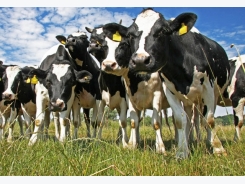Efficient technique discovered for isolating embryonic stem cells in cows

Cow embryonic stem cells could lead to more productive livestock. (Photo / UC Davis)
Findings could advance cattle production and help study human disease.
For more than 35 years, scientists have tried to isolate embryonic stem cells in cows without much success. Under the right conditions, embryonic stem cells can grow indefinitely and make any other cell type or tissue, which has huge implications for creating genetically superior cows.
In a study published in the journal Proceedings of the National Academy of Sciences, scientists at the University of California-Davis were able to develop a new culture system that allows them to efficiently derive stem cells on almost every single attempt.
Producing embryonic stem cells from large livestock species like cattle is important for genetic testing, genome engineering and studying human disease, according to the university. The cells may offer a better model for human stem cell therapies; mice and rats, which are traditionally used for these studies, are sometimes too small to demonstrate whether certain therapies will work on humans.
If researchers can generate gametes, or sperm and eggs cells, from the stem cell lines, the ramifications are profound. Such in vitro breeding could decrease the amount of time it takes to produce genetically superior cattle.
“That could revolutionize the way we do genetics by orders of magnitude,” said study author Pablo Ross, an associate professor in the department of animal science in the University of California-Davis College of Agricultural & Environmental Sciences.
In just a few years, scientists could speed up the process of improving generations by decades. “In two-and-a-half years, you could have a cow that would have taken you about 25 years to achieve. It will be like the cow of the future. It’s why we’re so excited about this,” Ross said.
The cow of the future could have more muscle, produce more milk, emit less methane or more easily adapt to a warmer climate, he said.
Ross envisions the findings helping the cattle industry become more sustainable. “Animals that are more efficient and have improved welfare, that may have more disease resistance, is better for everyone,” Ross noted.
Related news
Tools

Phối trộn thức ăn chăn nuôi

Pha dung dịch thủy canh

Định mức cho tôm ăn

Phối trộn phân bón NPK

Xác định tỷ lệ tôm sống

Chuyển đổi đơn vị phân bón

Xác định công suất sục khí

Chuyển đổi đơn vị tôm

Tính diện tích nhà kính

Tính thể tích ao




 6 Differences Between Llamas and Alpacas
6 Differences Between Llamas and Alpacas  Calves need more motherly care
Calves need more motherly care